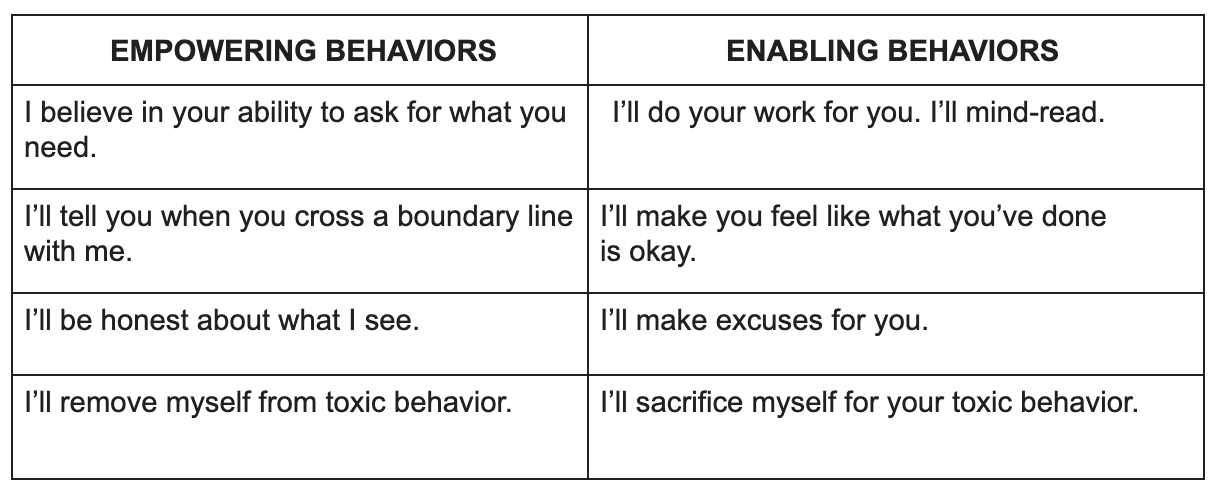A Grown-Up's Guide to Boundaries with Parents

by Dr. Alison Cook
“My parents are driving me crazy!” Mia exclaimed, her hands gesturing rapidly as she perched on the edge of my office chair, leaning forward with urgency. “I feel guilty if I say no to them. But then I get so frustrated if I don’t speak up for myself. How do I love them without feeling terrible?”As I got to know Mia, it became clear that Mia’s parents had not taught her how to establish healthy boundaries with other people, including with themselves. Instead of a healthy sense of connectedness, Mia felt anxious and tense. She felt responsible for her parents, yet she also resented them. Anger simmered beneath the surface, peppered with a big dose of guilt. She couldn’t figure out how to get unstuck and forge the life and relationships she craved.
Mia’s experience is common for many women who weren’t taught how to establish healthy boundaries. Perhaps your parents criticize or try to control your decisions. Or maybe they expect too much of you. Some parents may not appear outwardly abusive or act out of control. But it can still be challenging to figure out how to develop healthy boundaries with them.

When to Set Boundaries With Your Parents
There are multiple harmful parenting patterns which might develop. Here are three examples of when boundaries with parents are necessary:
1. Parentification
Parentification is a role reversal in which a parent relies on you to care for their emotional needs. This role reversal typically starts when you are a child. Instead of helping you understand your own ideas and perceptions about the world around you, they taught you to validate their feelings and opinions. In essence, you were taught to parent your own parent.
It’s not your job to validate or manage your parent’s emotions, especially when it comes to how they feel about you or your decisions. You can honor a parent without taking responsibility for their emotions.
2. Control
A controlling parent undermines your need for autonomy. Control can take many different forms. A possessive parent might try to stop you from growing close to other people or developing your own interests. They might dictate how you should raise your own children, dress, or make career decisions. Or they might be more subtle, constantly undermining, criticizing, or guilt-tripping you. If you’re feeling controlled in any of these ways, boundaries are necessary for you to grow and develop your God-given talents.
3. Blame-Shifting
Instead of taking responsibility for their own behaviors, blame shifting parents shift the blame onto you or others. If you have a parent who blames you or another family member for their own unhealthy behaviors, it can lead to a sense of helplessness and emotional distress. It’s wise to seek support as you learn to set boundaries and protect yourself.
Boundaries with Parents and the Bible
“Honor your father and your mother, so that you may live long in the land the Lord your God is giving you”(Exodus 20:12). Many women I’ve counseled struggle with this biblical commandment that teaches us to honor our parents. It’s an important concept worth noting, especially in the context of establishing healthy boundaries.
When women raise this verse to me as a concern, here are some of the questions I ask them:
Does it honor your mother or father to
• enable your father’s self-centeredness?
• damage your own marriage by staying fixated on your mom’s problems?
• bend over backward to meet unhealthy demands?
• engage in conversations that almost always turn toxic?
• wear yourself out so you don’t have energy for your own work, spouse, or children?
I don’t believe “honoring your father and mother” is represented by the situations above. In fact, you might find that honoring a parent can feel very counterintuitive. It might have to do with empowering them to take responsibility. Notice the difference between empowering versus enabling in the chart below:

In this light, let’s flip the question about honoring your parents. For instance, does it honor a parent to:
• remove yourself from inappropriate, harmful behavior?
• heal your own wounds so you don’t pass them down to your children?
• create healthy distance but harbor a posture of forgiveness in your heart?
It’s time to say yes to empowerment and no to enabling others. It’s time to establish healthy boundaries.
DR. ALISON COOK
Dr. Alison Cook is a psychologist and the author of The Best of You: Break Free From Painful Patterns, Mend Your Past, and Discover Your True Self in God and Boundaries for the Soul. Find out more at www.dralisoncook.com.
